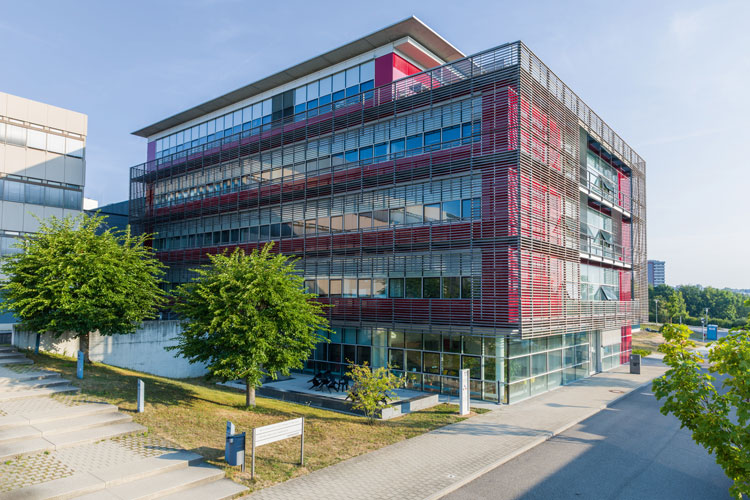The scope of services of M&P
- Inventory, analysis and tailored renovation of building and room automation
- Integration of about 1,500 physical and 2,200 communicative data points
- Upgrading of the automation level and connection to the Siemens Desigo CC management system
M&P has completely renovated the building automation system of the biological cybernetics department of the Max Planck Society in Tübingen (MPI) – and examined the networked systems of the building in detail. This thorough inventory was the starting point for new, future-proof automation solutions at the institute.
How is our memory structured? Why does light influence our psyche? What mechanisms does our cognitive computing centre use? The Max Planck Institute for Biological Cybernetics in Tübingen is looking for clues along the information pathways in our brain. Using experimental and theoretical methods as well as computer simulations, the scientists investigate the processes that allow us to perceive things, make decisions, take action and learn. According to the institute’s website, their findings have laid the foundations for AI research and will continue to shape this discipline in the future.
For its research, the biological cybernetics location includes sophisticated areas for looking after animals, seven magnetic resonance tomographs and spectroscopes, and laboratories for chemical synthesis, analytics, cell culture and histology. Modernisation is crucial to ensure the efficiency and reliability of building automation and to meet the specific requirements of the research areas.

Image: © Jörg Abendroth, Max Planck Institute for Biological Cybernetics
Immersion in the institute’s system landscape
The renovation of the automation of the buildings and rooms included buildings A, B and C of the MPI and involved the integration of about 1,500 physical and 2,200 communicative data points. The objective was a modern upgrading of the automation level and the connection to the Siemens Desigo CC management system. The challenges were a comprehensive inventory and analysis in order to be able to understand the complex structures and networked systems of the property. ‘You have to weigh up how to approach a renovation like this, take a close look and think: what are the special features of the building automation? Which processes depend on which systems? What can I switch off, at what time? Our work required good communication with the users of the rooms and a lot of effort in coordination,’ says Gabriela, the primary project engineer.
Defects in Siemens components due to age, for which there were no longer any spare parts due to discontinued series, made life even more difficult – their replacement often set off chain reactions in the process. One of many examples: the LON cable of an outdated bus system supplied 15 laboratories. For the renovation, the M&P team first had to find out where the bus ended and work their way forward from that end point in order to be able to switch off one room after the other during ongoing operation – and not all at once. Step by step, laboratory by laboratory, a new line of communication was established. However, with the new room controllers, the voltage also changed from 24 volts DC to 24 volts AC. And the team then had to adjust the next process steps once again.
‘Projects like this one in biological cybernetics are ambitious. The systems are unique; an off-the-shelf renovation is not possible. My team had to react to complex relationships within the MPI buildings time and again. The project has been a long, exciting journey. We were not looking for quick solutions, but rather the right ones. That was sometimes laborious and there were stumbling blocks along the way, but we achieved our goal. M&P not only has the ability, but also the experience to support demanding customers and institutes in their work – because we create the optimal technical framework conditions for their research,’ emphasises Gabriela, who accompanied the project from the basic assessment through to completion. The desire for innovation gives the experts from M&P staying power.
Image above: © Wolfram Scheible, Max Planck Institute for Intelligent Systems
